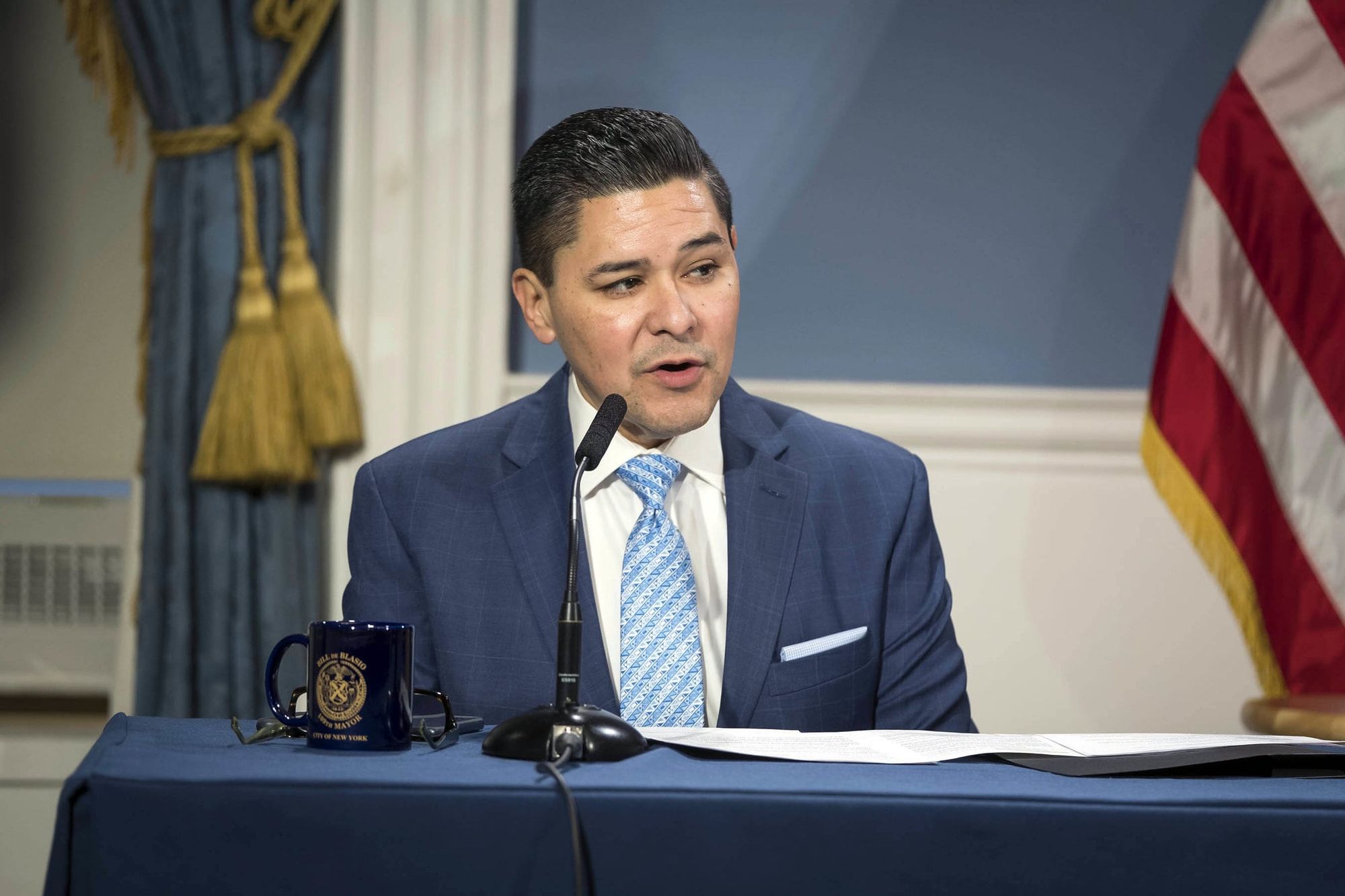In a jump, 18% of NYC students will need summer school to be ready for the fall, officials say


By Alex Zimmerman, originally published in Chalkbeat New York
More than one in six New York City students are expected to attend summer school this year, an indication of the scale of learning loss officials are bracing for as a result of the coronavirus pandemic.
City estimates released Tuesday show that almost 178,000 students — or nearly 18% of the district’s enrollment — are projected to be in summer classes that will be offered remotely starting in July.
“Any summer, there’s the possibility of learning loss over the summer — that could be a greater challenge in a summer like this,” Mayor Bill de Blasio said. “It’s going to be a huge effort, an unprecedented effort.”
Roughly 102,000 students at risk of being held back or who fell significantly behind will be required to attend summer school in grades 3-12 — more than double last year’s number. Another 48,000 struggling students will be recommended to attend summer school, and roughly 28,000 district school students with disabilities across all grade levels are already entitled to year-round schooling. (Officials stressed this year’s summer school figure is not directly comparable to years past because the criteria have been expanded to include more high school students.)
The district’s school buildings have been shut down to students since March 18 due to the coronavirus, meaning that by summer, one-third of the school year will have been conducted remotely — a significant disruption to student learning with effects that could be felt for years to come. Some parents, particularly those of students with disabilities, had hoped for some in-person instruction over the summer, but de Blasio’s announcement on Tuesday shut the door to that possibility, suggesting it is not yet safe to reopen buildings.
Summer school will run for six weeks in July and August, with students in grades 3-8 receiving instruction for four days each week and high school students and those with disabilities in school five days a week. The effort is expected to cost $83 million and require 6,000 educators to sign up to teach for extra pay over the summer, officials said, with applications opening this week.
Elementary and middle school students who are recommended to be held back a grade will be required to attend summer school and will not be promoted if they do not attend. High school students who receive a “course in progress” grade or failed a class earlier in the year will also be required to attend.
Officials said decisions about who will be recommended, but not required, to attend summer school would be left to teachers and principals.
“The recommendations for summer school including required attendance and recommended attendance are all based on the teachers’ analysis of the academic progress of the student,” schools Chancellor Richard Carranza said, noting that parent input should be considered, but that caregivers can’t opt their children into summer school unilaterally. Families will be notified in June if their children are required or recommended to attend summer school.
Officials said there will be some key differences between remote summer school and the distance learning offered during the school year. Instead of discouraging teachers from offering live lessons at an appointed time — seen as a potential hardship for students who were responsible for their siblings or lacked devices — “our focus is to have as much live learning as possible,” Carranza said.
Students will have access to “small group” instruction and can also take advantage of one-on-one support from counselors, social workers, and teachers. There will be a focus on social-emotional learning and other enrichment activities, such as virtual field trips.
It’s not clear to what extent summer programming will help students catch up, especially since online instruction is generally less effective than in-person instruction, research suggests, a dynamic that will not change until the fall at the earliest.
“As the DOE prepares for remote summer school, it must redouble its engagement efforts, providing individualized support to address the barriers to remote learning that led to the need for summer school for many students in the first place,” said Randi Levine, the policy director at Advocates for Children.
Still, de Blasio said he was confident summer school will make a difference.
“With every passing week everyone is learning how to do it better,” de Blasio said of remote learning. “It stands to reason you’re going to see additional gains.”
Chalkbeat is a nonprofit news site covering educational change in public schools.